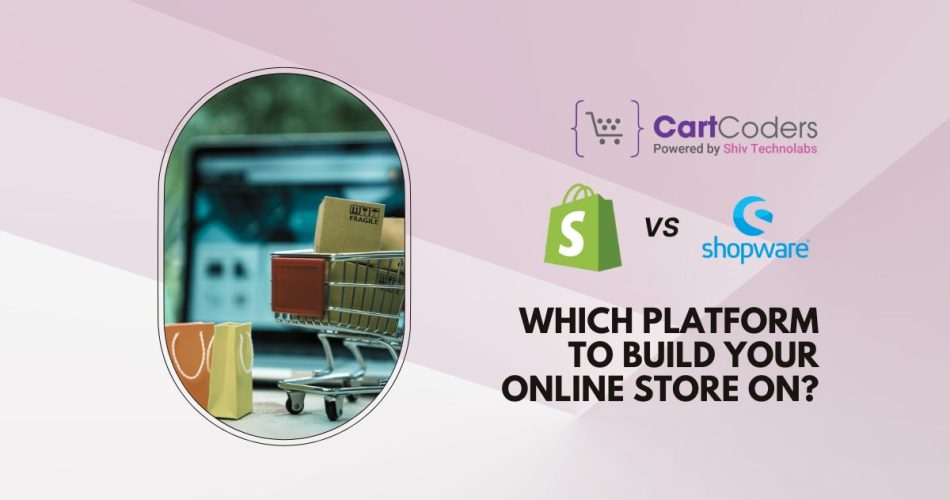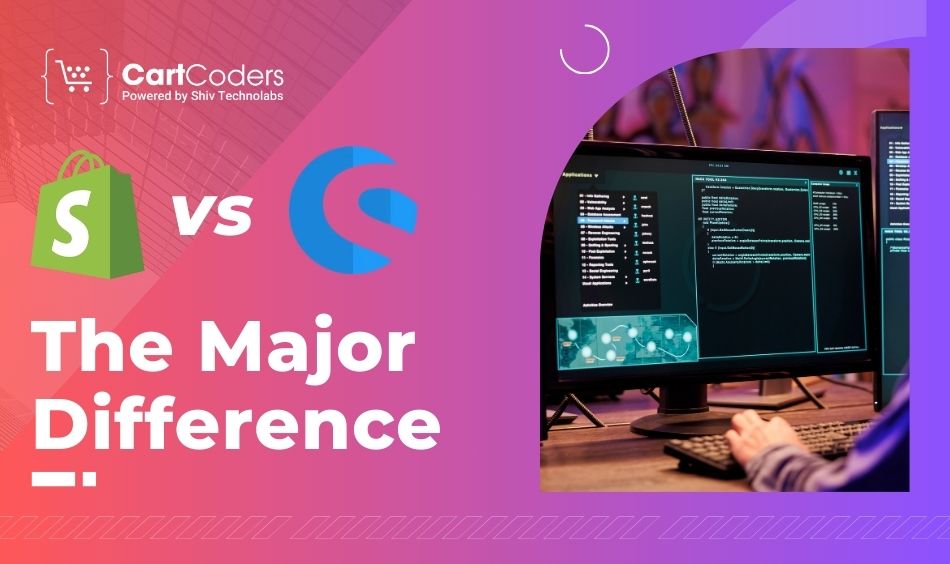Custom Engagement Solutions
Unlock tailored solutions with a free, no-obligation strategy session.
Expert Developers & Engineers on Demand
Scale Your Team with Skilled IT Professionals
Expert Guidance for Digital Transformation

When it comes to building an online store, two major platforms often come into consideration: Shopify and Shopware. Each has unique features, advantages, and pricing models that cater to different business needs. This guide will give you a detailed comparison, helping you choose the right platform for your eCommerce journey.
Shopware is an open-source eCommerce platform primarily popular in European markets, especially in Germany. Established in 2000, it offers flexibility and customizability for businesses, making it ideal for those who want a scalable solution tailored to their specific needs. Shopware is designed for businesses looking to manage complex product catalogs and multichannel commerce efficiently.
With both a self-hosted version (Shopware 6) and a cloud-based option (Shopware Cloud), this platform caters to businesses of all sizes, from startups to large enterprises. Shopware emphasizes innovation, providing robust tools for customizing storefronts and offering API-first architecture to integrate with third-party applications.

Shopify is a well-known eCommerce platform, recognized for its ease of use and comprehensive feature set. Launched in 2006, Shopify has grown to become a top choice for small and medium-sized businesses worldwide. The platform is fully cloud-based, allowing users to create and manage their stores without worrying about server maintenance or security.
Shopify’s key strengths lie in its user-friendly interface, wide variety of themes, and extensive app ecosystem. It is perfect for those who prefer a hassle-free setup and are looking for pre-built tools to manage their eCommerce operations quickly and efficiently.
Shopify: Shopify is known for its intuitive interface. Even users with little to no technical experience can set up a store in a matter of hours. Its drag-and-drop editor and user-friendly dashboard make it easy to manage products, inventory, and orders.
Shopware: Shopware offers more flexibility but is slightly more complex than Shopify. The learning curve can be steeper for beginners, especially when dealing with the self-hosted version, which requires some technical knowledge for customization and setup.
Shopify: Shopify offers customization through themes and apps, but users are limited by the platform’s core functionality. Advanced customizations may require coding knowledge or hiring a developer.
Shopware: Being open-source, Shopware is far more customizable. Businesses can modify almost any aspect of their store, making it ideal for companies with complex needs. The self-hosted version provides total control over store design, functionality, and integrations.
Shopify: Shopify provides a wide range of professional themes, both free and paid. These are responsive and designed to suit various industries. However, custom theme development may require technical assistance.
Shopware: Shopware also offers various responsive themes, but the platform shines when it comes to bespoke design. Its flexibility allows for more advanced and unique layouts, which can be tailored specifically to a business’s branding and user experience.
Shopify: The Shopify App Store is extensive, with thousands of apps to extend your store’s functionality. From marketing tools to analytics, almost every feature you need is available through third-party apps.
Shopware: Shopware has a smaller but growing marketplace for plugins and extensions. While it doesn’t offer the same volume as Shopify, it does provide necessary tools for CRM, payment gateways, and marketing integrations. Shopware’s open-source nature means custom plugins can be developed with ease, offering endless possibilities for tailored solutions.
Shopify: Shopify supports a wide range of payment gateways, including PayPal, Stripe, and its own Shopify Payments. It charges transaction fees if you use third-party payment processors unless you opt for Shopify Payments.
Shopware: Shopware also offers a wide range of payment gateways. However, since it is more commonly used in Europe, some payment options might cater more to European markets. Unlike Shopify, Shopware does not charge additional transaction fees for using external payment processors.
Shopify: Shopify comes with built-in SEO tools to optimize your store’s visibility on search engines. It also integrates with social media platforms, email marketing services, and offers tools for discounts, abandoned cart recovery, and more.
Shopware: Shopware is equally strong in the SEO department, with extensive features for managing meta tags, URLs, and other technical SEO aspects. Shopware’s marketing capabilities allow for advanced customization of campaigns and promotions, and it integrates well with social platforms.
Shopify: Shopify supports multiple currencies and languages, though managing multilingual stores can be tricky without additional apps.
Shopware: Shopware offers native support for multiple languages and currencies, making it a more seamless option for international businesses.

The key distinction between Shopify and Shopware is the level of control and customization they offer. Shopify is designed for users who want an easy-to-use, all-in-one solution that requires minimal technical expertise. It handles the complexities of hosting, security, and maintenance, allowing business owners to focus on selling.
Shopware, on the other hand, is ideal for businesses that require deep customization, more control over the user experience, and flexibility in integrating with third-party systems. While Shopware Cloud offers some of the same benefits as Shopify, the self-hosted version is where the platform truly shines, providing businesses with the ability to modify and adapt their store to specific needs.
Shopify offers three main pricing tiers: Basic Shopify ($39/month), Shopify ($105/month), and Advanced Shopify ($399/month). Each tier offers increasing levels of functionality, including more staff accounts, lower transaction fees, and advanced reporting features.
Shopify also provides a 14-day free trial and a Shopify Lite plan ($9/month) for those who want to sell through social media or embed products on an existing website.
Shopware’s pricing varies depending on whether you choose the self-hosted or cloud version. Shopware Cloud offers three tiers: Starter (free), Professional (€199/month), and Enterprise (custom pricing). The free version is ideal for small businesses looking to start with a basic online store, while the Professional and Enterprise plans provide advanced functionality and support.
The self-hosted version of Shopware is free under the Community Edition, but businesses will need to pay for hosting, plugins, and any custom development work. Shopware Enterprise for large-scale operations requires a custom quote based on the business’s needs.
While Shopify has a clear and structured pricing model, Shopware’s pricing can vary significantly depending on the level of customization, plugins, and hosting services needed.
When deciding between Shopify and Shopware, the choice ultimately depends on your business’s size, goals, and technical capabilities. Shopify is an excellent choice for small to medium-sized businesses that need a quick and easy solution to start selling online. Its app ecosystem and user-friendly interface make it a popular choice for entrepreneurs who prefer a straightforward platform with all essential features pre-packaged.
Shopware, on the other hand, is better suited for businesses that require flexibility and a high degree of customization. Its open-source nature, combined with robust API support, makes it an ideal platform for growing enterprises that need custom solutions or plan to scale internationally.
If you’re looking for ease of use and pre-built functionality, Shopify will be the more practical option. However, if your business demands more control, adaptability, and is prepared to invest in custom development, Shopware may be the superior platform for your online store.
Both platforms have their strengths and weaknesses, and the right choice will depend on your business model, technical resources, and future growth plans.
If you’re considering moving from Shopware to Shopify to take advantage of its user-friendly features and extensive app ecosystem, CartCoders offers expert assistance. Our Shopware to Shopify migration services are designed to provide a smooth transition, ensuring your store is up and running with minimal downtime. As Shopware to Shopify migration experts, we handle every aspect of the migration process, from data transfer to design adjustments, so you can focus on growing your business without any disruptions. Let us help you make the switch seamlessly and efficiently.
Projects delivered in 15+ industries.
95% retention rate, building lasting partnerships.
Serving clients across 25+ countries.
60+ pros | 10+ years of experience.